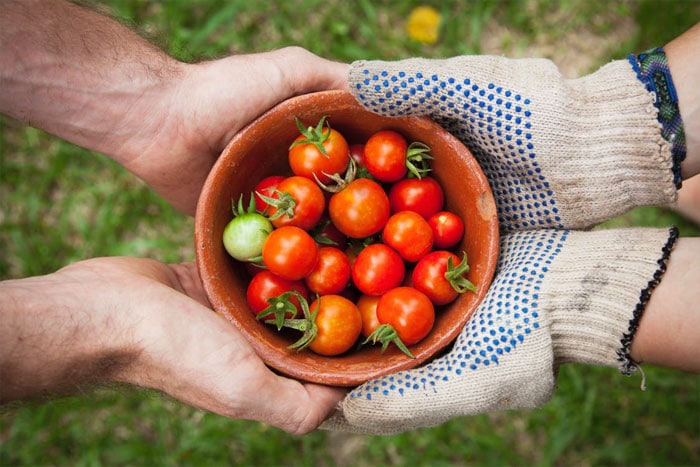
Written By: Gloria Tsang, RD
Title: Founding Registered Dietitian
Alumni: University of British Columbia
Last Updated on:

Lycopene, a powerful antioxidant, is found abundant in tomatoes and tomato products. Studies found that lycopene may help reduce some cancer and heart disease. The most compelling evidence so far is the role of lycopene in prostate cancer prevention.

Table of Contents
In a study of over 40,000 health professionals, Harvard investigators found that men who ate more than 10 servings tomato-based foods daily (like cooked tomatoes and tomato sauce,) had a 35 percent lower risk of developing prostate cancer than those who ate the least amount of these foods. The benefits of lycopene was more pronounced with advanced stages of prostate cancer.
In another study of prostate cancer, researchers looked at blood levels of lycopene and found that the risk of developing prostate cancer, especially aggressive cancer, decreased with increasing blood lycopene levels. Men taking 50mg of lycopene daily had significantly higher level of lycopene. In this study, researchers found that high level of lycopene in the blood was associated with low PSA (prostate specific antigen) levels. High PSA levels in blood are often a sign of prostate cancer.
Enjoy the benefits of lycopene by eating more tomatoes and processed tomato products. Indeed, research showed that lycopene is better absorbed by the body when tomatoes are processed. It is due to the fact that lycopene is bound to tomato’s cell structure; processing releases lycopene from the cell structure.
Study showed warm watermelons provide more lycopene. Researchers from the U.S. Department of Agriculture (USDA) studied the effect of storage temperature on the carotenoid levels of three different kinds of watermelon. The researchers stored the watermelons at five, 13 and 21 degree celsius for 14 days. Researchers found that watermelons stored at 21 celsius (room temperature) gained 11 to 40 percent in lycopene and 50 to 139 percent in beta-carotene compared to watermelons stored at five and 13 degrees. The results of this study were published online on the Journal of Agricultural and Food Chemistry web site in July 2006.
Lycopene, a powerful antioxidant, is found in abundance in tomatoes and other red-colored fruits. Studies found that lycopene may help reduce the risk of heart disease and some forms of cancer. The most compelling evidence so far is the role of lycopene in prostate cancer prevention.
Heat and processing destroy some nutrients, but heat and processing increase lycopene content. For instance, one hundred grams of cooked tomato paste provide 42 milligrams of lycopene, whereas the same amount of raw tomato only provides three milligrams of lycopene. Hence, to maximize the health benefits of eating lycopene-containing fruit, it is better to leave your watermelon out at room temperature and cook your tomatoes!
Alumni: University of British Columbia – Gloria Tsang is the author of 6 books and the founder of HealthCastle.com, the largest online nutrition network run by registered dietitians. Her work has appeared in major national publications, and she is a regularly featured nutrition expert for media outlets across the country. The Huffington Post named her one of its Top 20 Nutrition Experts on Twitter. Gloria’s articles have appeared on various media such as Reuters, NBC & ABC affiliates, The Chicago Sun-Times, Reader’s Digest Canada, iVillage and USA Today.
cancer, lycopene, prostate, prostate cancer, tomatoes, watermelon